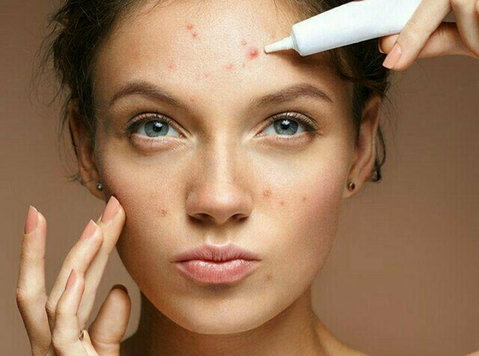Posted in: Buy & Sell > Other in Karnataka | Posted: |
What causes acne?
Acne is a common skin condition that affects people of all ages. It occurs when hair follicles become clogged with oil, dead skin cells and bacteria resulting in pimples, blackheads, and whiteheads. There are several factors that can contribute to the development of acne, including genetics, hormonal changes, and stress. Additionally, certain triggers such as diet, skincare products and medications can also worsen existing acne or cause new breakouts to form. While there is no surefire cure for acne, there are steps, medical treatments you can take to minimize breakouts and manage the condition.
What Diet You Should Follow?
Maintaining a healthy diet can go a long way in preventing acne. Consuming foods that are high in sugar, refined carbohydrates and dairy can stimulate the production of oil in the skin, leading to clogged pores & inflammation and trigger breakouts. it's best to avoid processed foods, fried foods, sugary drinks and instead, incorporate fresh fruits and vegetables into your diet, particularly those that are high in vitamin A and C, as they are essential for healthy skin.
The Ideal Skincare Routine
Creating a consistent skincare routine can also help control acne. Start with washing your face twice daily with a gentle BHA cleanser, as it helps exfoliate and unclog pores .Follow it by a niacinamide serum to regulate sebum production and minimize breakouts. It's also important to use a lightweight and non-comedogenic moisturizer to hydrate the skin and improved barrier function . Additionally, consistent use of SPF protection is important as it will help minimize acne scarring and hyperpigmentation. Avoid using harsh scrubs and exfoliants, as they irritate the skin. Ensure that all the products you use are non-comedogenic, meaning they do not clog pores.
Preventive measures
There are other measures you can take to prevent acne breakouts. Avoid touching your face with your hands, and if you wear glasses or sunglasses, ensure that they are clean before using them. Change your pillowcases and bed linens regularly to prevent the buildup of acne-causing bacteria. Also, keep your hair clean and away from your face, especially if you use hair products that can clog pores.
Conclusion
If you have persistent acne that is not responding to SKINCARE routines ,diet and lifestyle changes, you should consider visiting a dermatologist. There are numerous medical treatments and cosmetic procedures available to aid in the treatment of acne. These include chemical peels, laser therapy, microdermabrasion and so on . Your dermatologist can recommend the best option for you based on your skin type and the severity of your acne.
In summation, to effectively manage acne, it is crucial to adopt a multifaceted approach that involves a combination of healthy dietary choices, consistent skincare routines, preventive measures, and medical treatment options. By doing so, you can effectively manage acne and achieve clear and healthy skin .
Contact this advertiser





